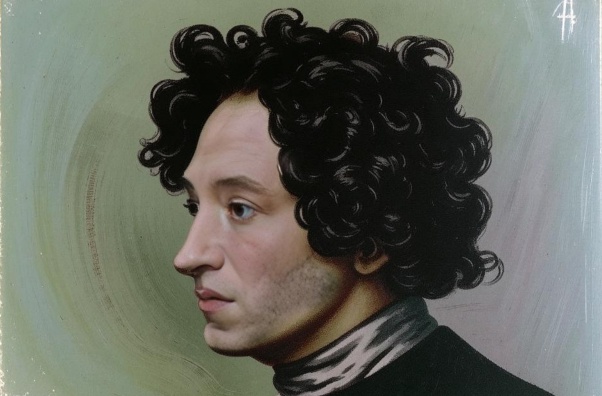The Sun of Russian Poetry
пятница 6 июня 2025, 11:23
 Photo by Kandinsky 3.1. |
____ |
The name of Pushkin is inseparably linked with the Russian language, and it is no surprise that June 6, his birthday, is celebrated as Russian Language Day. The poet was proud of his Moscow origins, believing that non-Muscovites could not judge “proper pronunciation” and “truly Russian expressions.” To delve deeper into the poet’s literary and social stance, one can turn to the collection of essays On Pushkin by Dmitry Ivinsky. At the same time, no one worked harder on their education than Pushkin himself. He reproached contemporary writers, saying, “We have few writers who study; most only unlearn.” The poet’s experiments are the subject of Samuil Shvartsband’s work Pushkin: Experiments in Verse and Prose, which analyzes both well-known and little-studied texts.
Pushkin’s first attempts at writing were in French—the language of the aristocracy at the time. Later, he realized the importance of developing his native language and acknowledged that practicing a foreign language could be harmful to Russian poetic technique. In this context, Alexander Smirnov’s work The Romantic Lyrics of A.S. Pushkin as Artistic Unity is especially interesting, revealing the connection between Pushkin’s creativity and the development of Russian and world literature.
Today, as we celebrate the birthday of the great poet and Russian Language Day, the Ural Federal University Library invites you to engage with the genius’s legacy and broaden your understanding of his work: explore his illustrations in Gennady Antonov’s book Marine Drawings in Pushkin’s Graphics or learn about the poet’s final days from the collection The Last Year of Pushkin’s Life.
You can check the availability of all the mentioned books using the Library Catalogue.
Author and translator:
Olga Mukhina |



